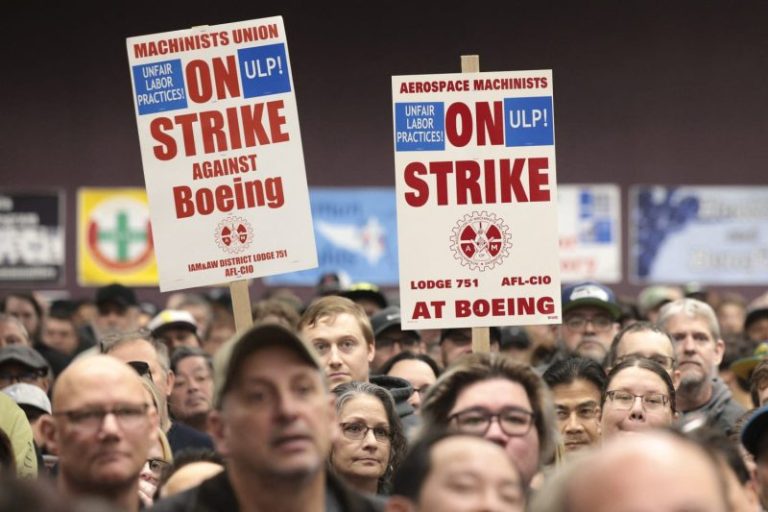In a historic turn of events, the Boeing strike, which had paralyzed the aviation industry for weeks, has come to an end. Machinists have overwhelmingly voted to approve a new labor contract that includes a remarkable 38% wage increase, marking a significant victory for the workers and heralding a new chapter in labor relations at the aerospace giant.
The strike, which began amidst growing tensions over stagnant wages and working conditions, had sent shockwaves throughout the industry. Grounded planes, delayed deliveries, and mounting financial losses had all become part of the everyday reality for Boeing and its employees. However, the resolution of the strike represents a turning point not just for the company, but for the broader labor movement as well.
For the machinists who went on strike, the new contract signifies more than just a pay raise. It is a testament to the power of collective action and solidarity in the face of corporate pressure. By standing together and demanding fair wages and better working conditions, the workers have shown that they are not just cogs in a machine, but essential contributors to the success of the company.
The 38% wage increase is a bold move by Boeing, signaling a willingness to acknowledge the vital role that its employees play in the company’s operations. By offering a substantial raise, Boeing has not only met the demands of the striking workers but has also set a new standard for fair labor practices in the industry. This move is poised to have ripple effects across the aviation sector, inspiring workers in other companies to demand better treatment and fair compensation for their efforts.
Moreover, the resolution of the strike is a win-win for both parties involved. While the workers have secured a significant wage increase and improved working conditions, Boeing can now resume its operations with a motivated and content workforce. This newfound spirit of cooperation and mutual respect bodes well for the future of the company, as well as the overall health of the aerospace industry.
Looking ahead, the end of the Boeing strike serves as a reminder of the enduring power of collective bargaining and labor unions in safeguarding the rights and interests of workers. As companies continue to navigate the complexities of a rapidly changing global economy, investing in their employees and fostering strong labor relations will be key to ensuring long-term success and sustainability. The resolution of the Boeing strike exemplifies this principle in action, setting a positive precedent for future labor negotiations in the industry and beyond.



